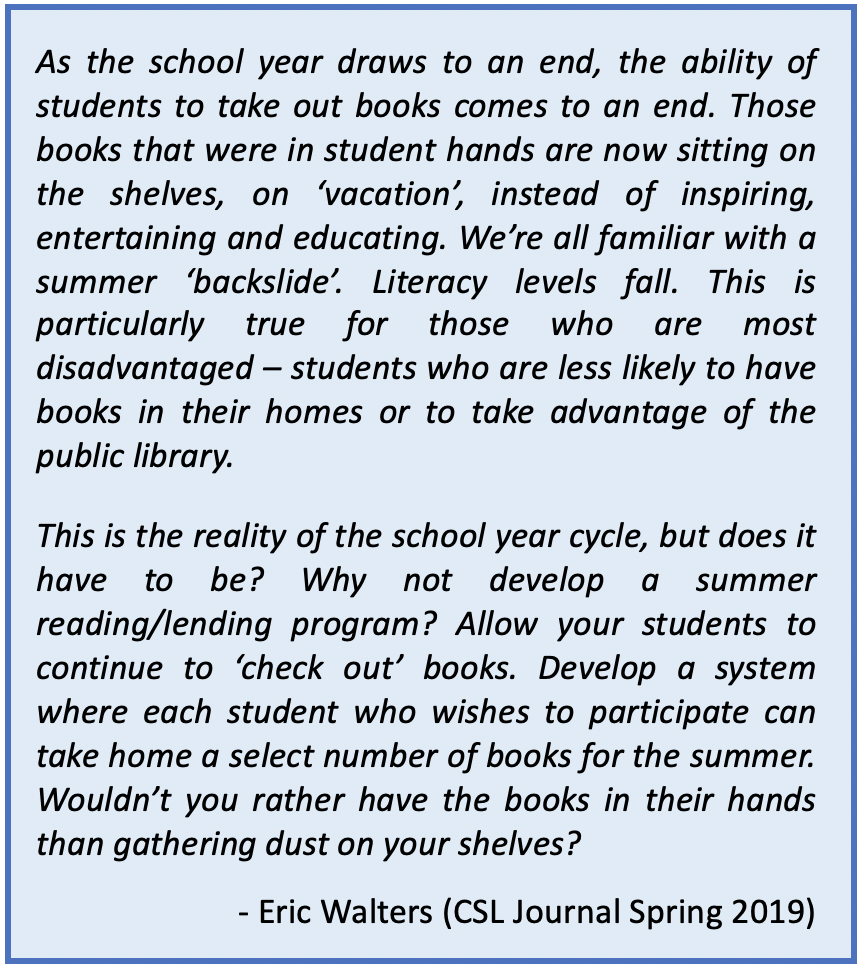Did you hear the call? School libraries across Canada are mobilizing to keep students reading, thinking and making over the summer!
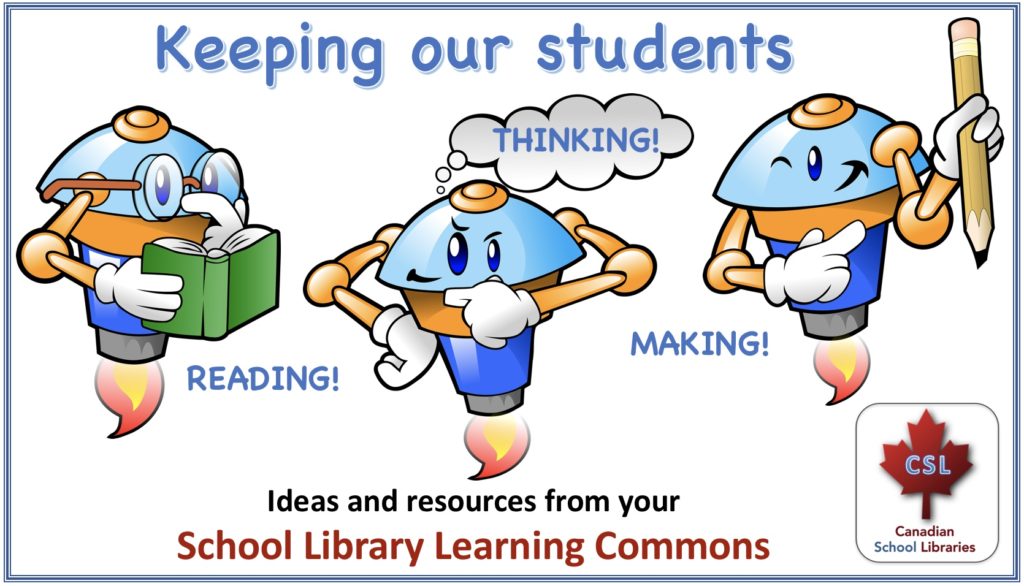
Mobilizing School Libraries to Keep Kids Reading, Thinking & Making
School libraries are all about engagement in reading, making and thinking. Fostering a love of reading and developing a natural curiosity is at the heart of what we do. We know that excellent school library programs make a difference in student achievement during the school year. The question is how can we extend that influence into the summer months when children are not involved in formal classes.
Most public libraries offer great summer reading programs. Many teacher-librarians and other school library professionals provide summer reading lists for their students and share these with parents as well. Is there more we can do from the library learning commons to get more books into the hands of students and also spur them to keep on learning over the summer break?
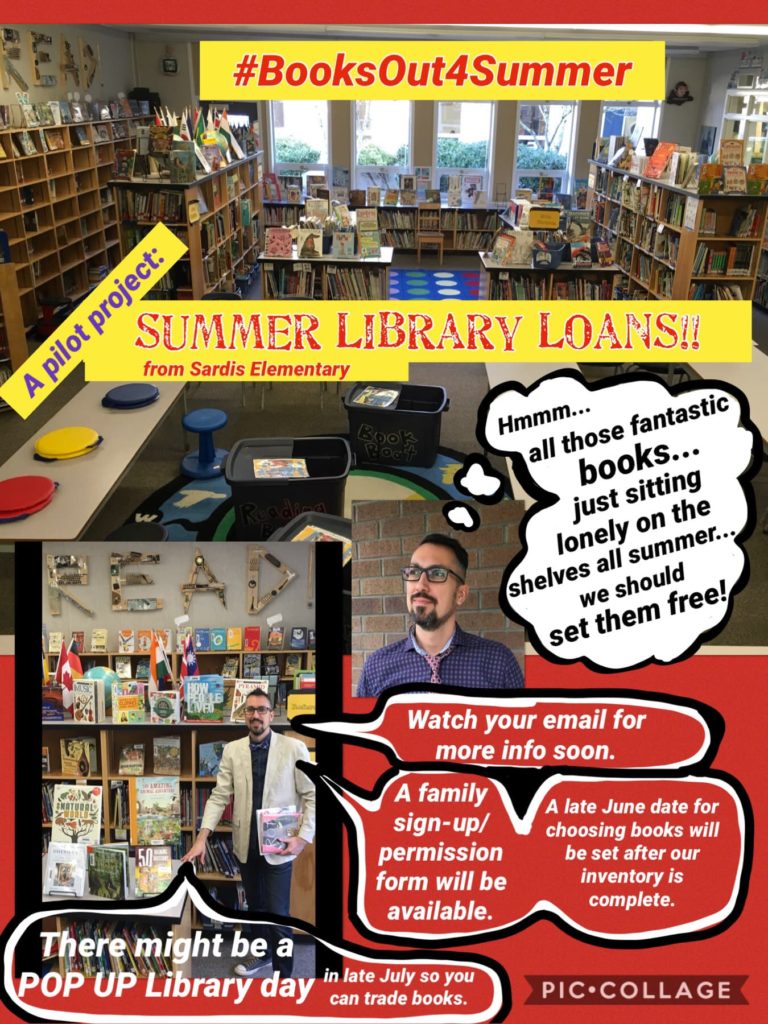
The Basics:
- Make use of your virtual school library learning commons.
- Partner with the local public library.
- Circulate books to students over the summer.
- Challenge readers to participate in deep thinking and making extensions.
- Utilize social media to communicate and engage students and build community.
- Communicate with parents and caregivers regarding summer programs available. (Teacher-librarian Chistopher Hunt provides this example of his permission form and promotional poster, and invites you to copy and edit as required for your own purposes.)
What Works:
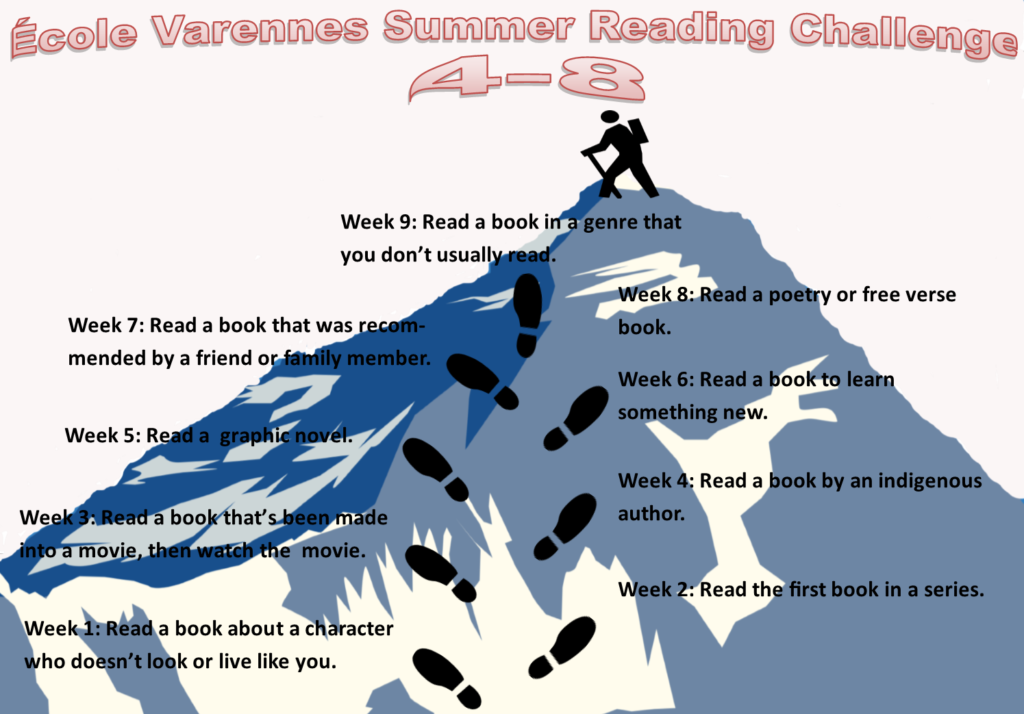
Practical ideas from school libraries across the country to inspire you to address the summer achievement gap for your students.
- Keep them Reading, Thinking and Making: Over 50 ideas and programs from school libraries across the country
- Using Tech and Social Media to Enhance Your Summer Reading Program by Derek Acorn
- How We Ran a Teen Summer Book Club by Janet MacLeod
Share on Twitter using the hashtag: #CSLsummerreading
Ideas, resources, activities and reactions !
The Eric Walters Challenge
Best-selling author Eric Walters is driven by a passion for getting kids reading. In partnership with CSL, the CCBC and CANSCAIP and with the sponsorship of Orca Book Publishers, Eric has challenged school libraries from across the country to allow and indeed encourage students to take books home for the summer of 2019.
Response to Eric’s call has been spectacular. Participating schools have received a package of posters and bookmarks signed by Eric, and “swag” donated by other authors. Orca Book Publishers has generously offered an incentive to participating schools to help them replace any books lost over the summer at discounted prices. Enthusiasm for this first year of the challenge means that the program is likely to continue and to grow in future years.
The Proof is in the Data!
Do these initiatives make a difference? We think so, but do we really know? We can tell our success stories, but can we back them up with data? How can you demonstrate that your summer reading / thinking / making initiatives have made a difference? Who needs to know?
Collecting, analyzing and sharing information informs your own practice and demonstrates how the school library program contributes to student success, at your school and beyond.
What Data Should You Collect?
Quantitative Data: Quantitative research uses numerical data or data that can be transformed into statistical information to explore a research question. Quantitative data is particularly useful for formulating facts and uncovering patterns to support research conclusions.
Collect Quantitative Data About:
- Number of participants
- Grade range of participants
- Loan parameters for summer lending program
- Number of books permitted for each student
- Total number of books loaned
- Average number of books per student
- Student reading habits. Ask students:
- How many of the books you borrowed did you read?
- Did you read other books over the summer?
- Did you borrow from the public library?
- Participation for your programs, such as a virtual book club or maker challenge
- Number of logins for program webspaces
- Level of participation (conversations, artifacts, etc.)
- Budget:Program Investments and Costs
- Cost of program promotions and/or platforms
- Financial support from school, parent council, etc.
- For summer lending:
- Lost book statistics
- Replacement costs
Qualitative Data: Qualitative research encompasses approaches where data is collected through observation of behaviours or verbal interactions or reports. When you collect qualitative data you are focussing on the deeper story behind the initiative. Collecting qualitative data is easier than it might seem.
Collect Qualitative Data:
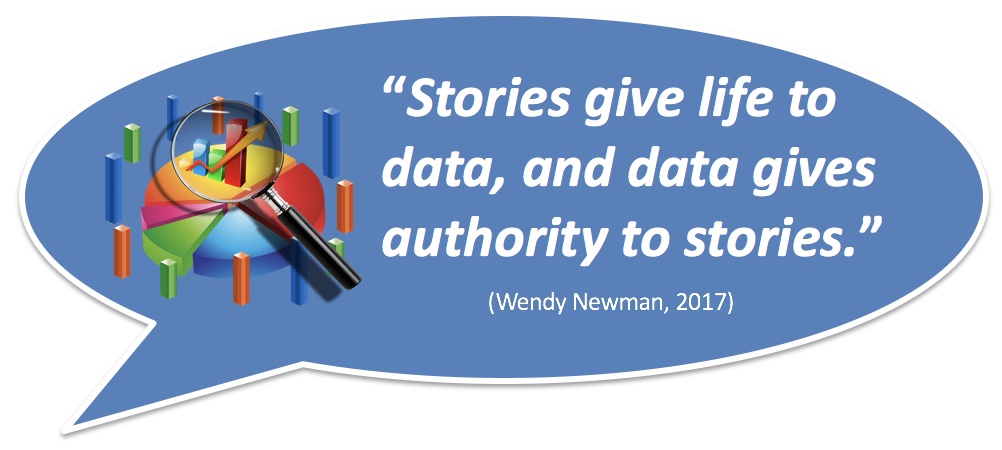
- Participants’ Stories:
- Ask students about their experiences in the program.
- Use a questionnaire, exit slips, interviews, or any method that makes it easy for you to collect and use this information.
- Stakeholders’ Stories:
- Ask teachers / parents / administrators about their impressions.
- Conduct interviews, or simply write down oral comments or keep comments received via email, etc.
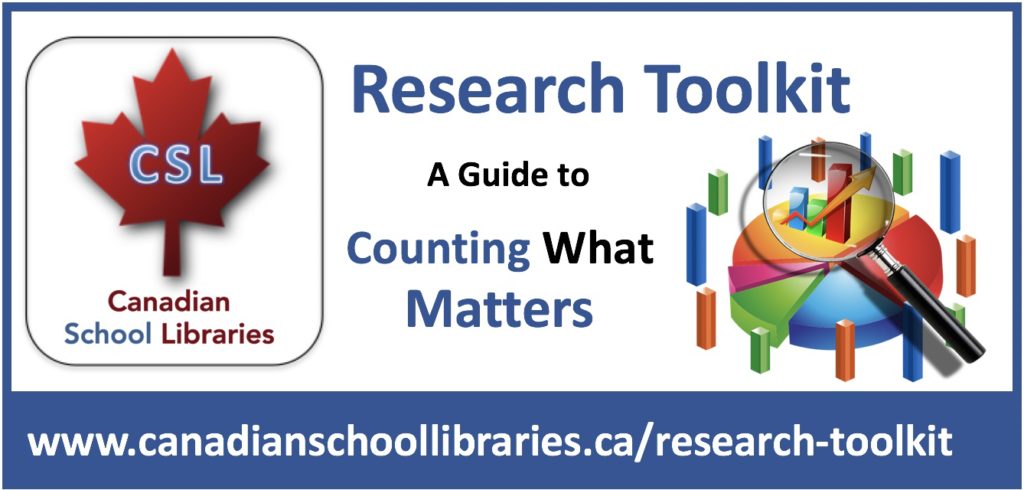
Collect Artifacts:
For some summer programs, your students may be creating artifacts like videos and maker projects. Your own program artifacts may include promotional materials, collaborative online spaces and web-based information.
Contribute to Our Research
Canadian School Libraries, assisted by Eric Walters, is collecting data about summer programs offered by schools from across the country. If you are offering a summer program of any kind, including but not limited to summer book loans, book clubs and maker clubs, we want you to contribute to our research.

In September 2019 participants in the Eric Walters Summer Reading Challenge will be asked to complete our questionnaire. The questionnaire is not limited to participants in that program, so we will be requesting participation from others as well. Watch for the call in the CSL Newsletter, on Twitter and on Facebook. Information gathered through the questionnaire will be aggregated and analysed to provide insight into the success of summer incentives from the school library. All appropriate measures will be taken to ensure fairness and equity and protect privacy.
Our research results from this first survey will be presented at CSL’s TMC6 Research Symposium and Think Tank, taking place in Toronto on January 31 and February 1, 2020. It is hoped that CSL may be able to pursue ongoing longitudinal research over a number of years, as more schools engage in summer program initiatives.


